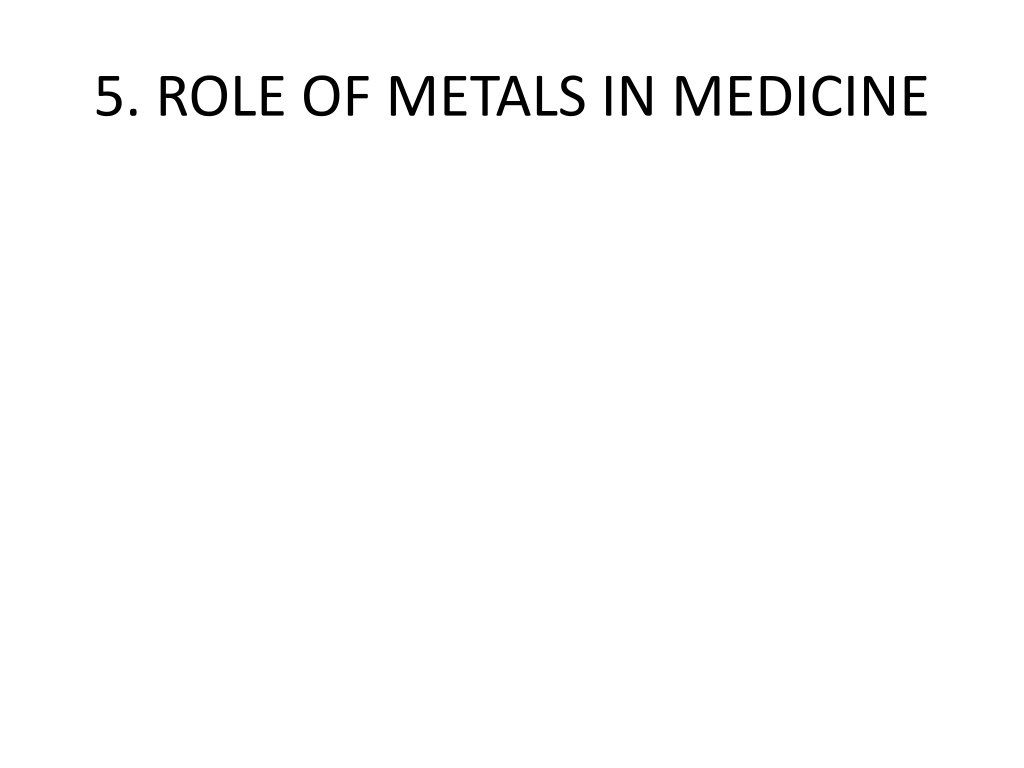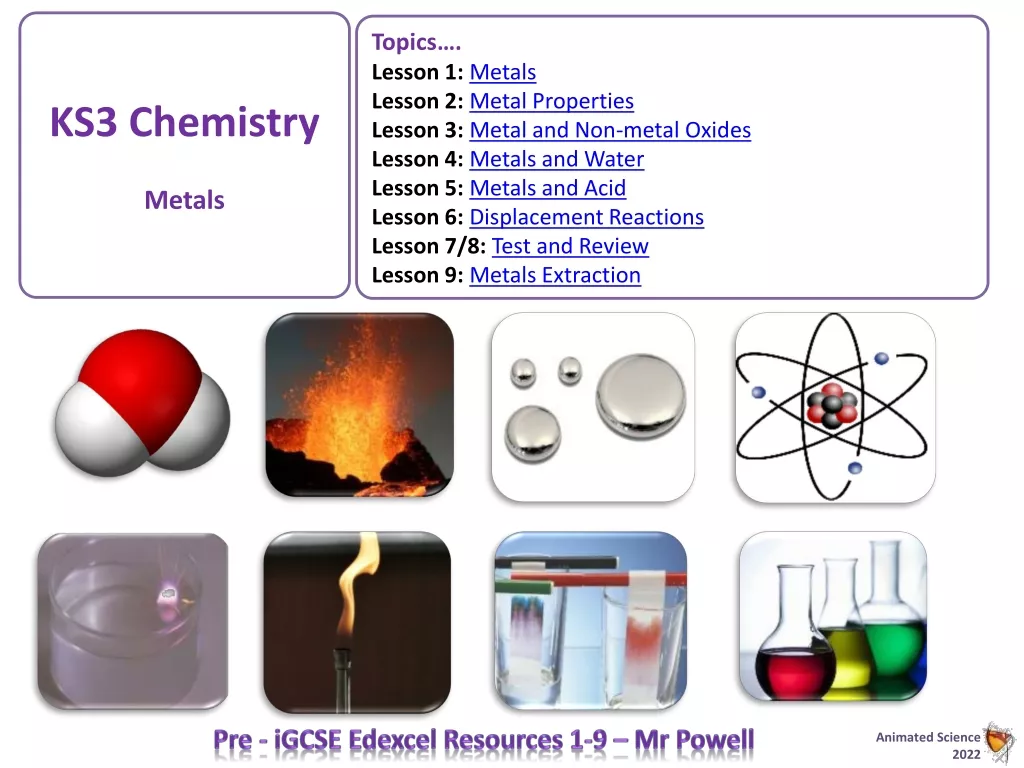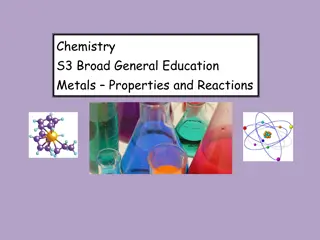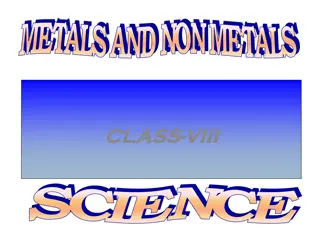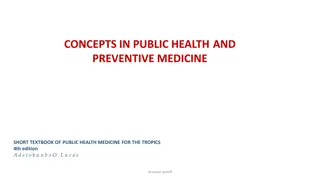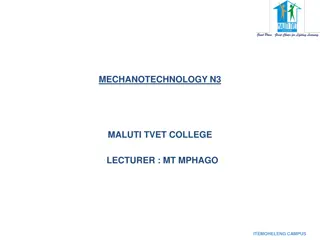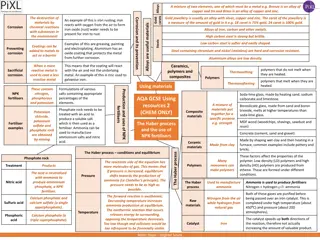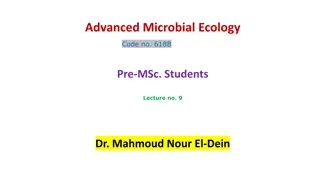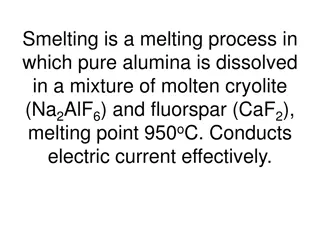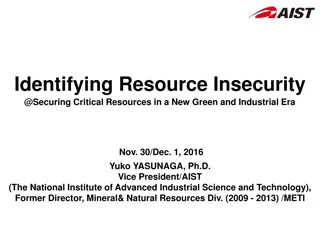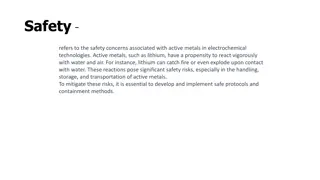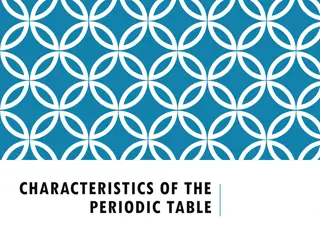Exploring the Vital Role of Metals in Modern Medicine
An in-depth look at the diverse roles metals play in contemporary medicine, from bio-essential functions to the development of metal-based drugs. Discover how metals like iron, lithium, and auranofin are utilized for medicinal purposes, alongside their applications in non-invasive radiopharmaceuticals and Magnetic Resonance Imaging (MRI).
Download Presentation

Please find below an Image/Link to download the presentation.
The content on the website is provided AS IS for your information and personal use only. It may not be sold, licensed, or shared on other websites without obtaining consent from the author.If you encounter any issues during the download, it is possible that the publisher has removed the file from their server.
You are allowed to download the files provided on this website for personal or commercial use, subject to the condition that they are used lawfully. All files are the property of their respective owners.
The content on the website is provided AS IS for your information and personal use only. It may not be sold, licensed, or shared on other websites without obtaining consent from the author.
E N D
Presentation Transcript
There are an astonishing number and variety of roles that metals play in contemporary medicine.
This section contains information on the medicinal uses of inorganics, that is, of elements such as
iron, lithium, to name a few, as well as metal-containing species such as auranofin (Au).
In keeping with the notion that healthy mammals rely on (bio-essential) metals for the normal
functioning of approximately a third of their proteins and enzymes, a large number of drugs are
metal-based and considerable effort is being devoted to developing novel metal-based drugs. While
there is no doubt that there is an emphasis on 'metallotherapeutics', the use of metals in medicine is
not restricted to metal-based drugs. The following are also find applications of metals in biology:
non-invasive radiopharmaceuticals (e.g. technetium-based radiopharmaceuticals)
Magnetic Resonance Imaging (MRI) (e.g. gadolinium-based paramagnetic contrast agents).
mineral supplements (e.g. calcium supplement for bone growth).
There has been an appreciation of the role metal-based drugs play in modern medicine and a
considerable effort is currently devoted to the development of novel complexes with greater
Selected examples of metallotherapeutics and metal-based diagnostic agents:
Auranofin (Au) used for treatment of arthritis
Cisplatin and carboplatin (Pt) testicular and ovarian cancer
Boron boron neutron capture therapy (BNCT)
Selenium treatment of liver, prostate and bladder cancer
Rhenium palliative treatment of bone pain
Vanadium treatment of diabetes (current research)
With regards to diagnosis, target specificity is a requirement, and therefore the ligands act as shuttles but the physical nature of the metal plays a role. We shall discuss in detail only the chemistry involved in platinum complexes as
chemotherapeutic anti-cancer agents, and in particular the action of cispatin will be discussed.
The discovery of cisplatin (cis- diamminedichloroplatinum, or cis- DDP) in the early 1960s
generated a tremendous amount of research activity as scientists strove to understand how the drug
worked in the human body to destroy cancer cells.
We now believe that cisplatin coordinates to DNA and that this coordination complex not only
inhibits replication and transcription of DNA, but also leads to programmed cell death (called
As it turns out, however, formation of any platinated coordination complex with DNA is not
sufficient for cytotoxic (that is, cell- killing) activity. The corresponding trans isomer of cisplatin
